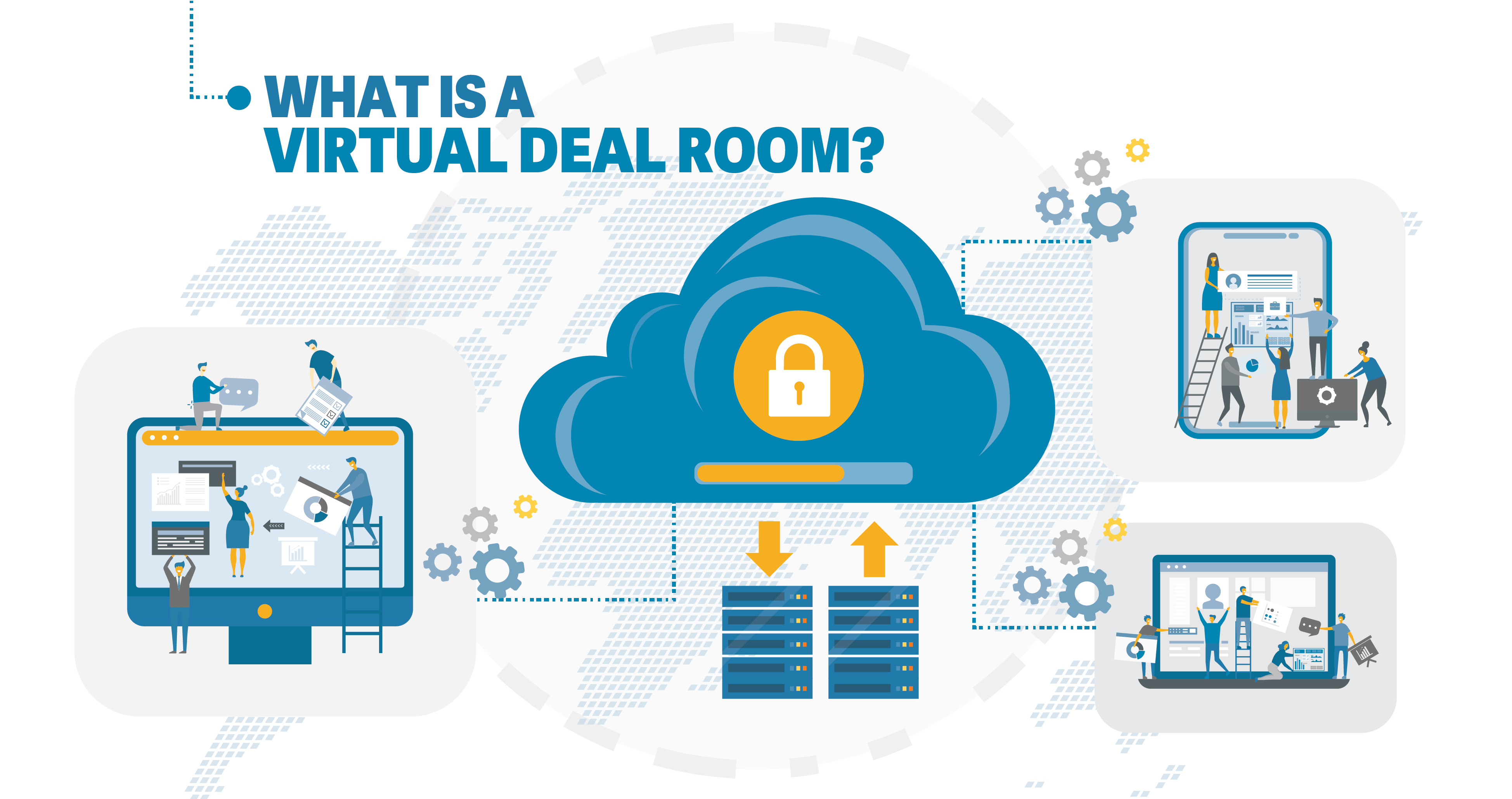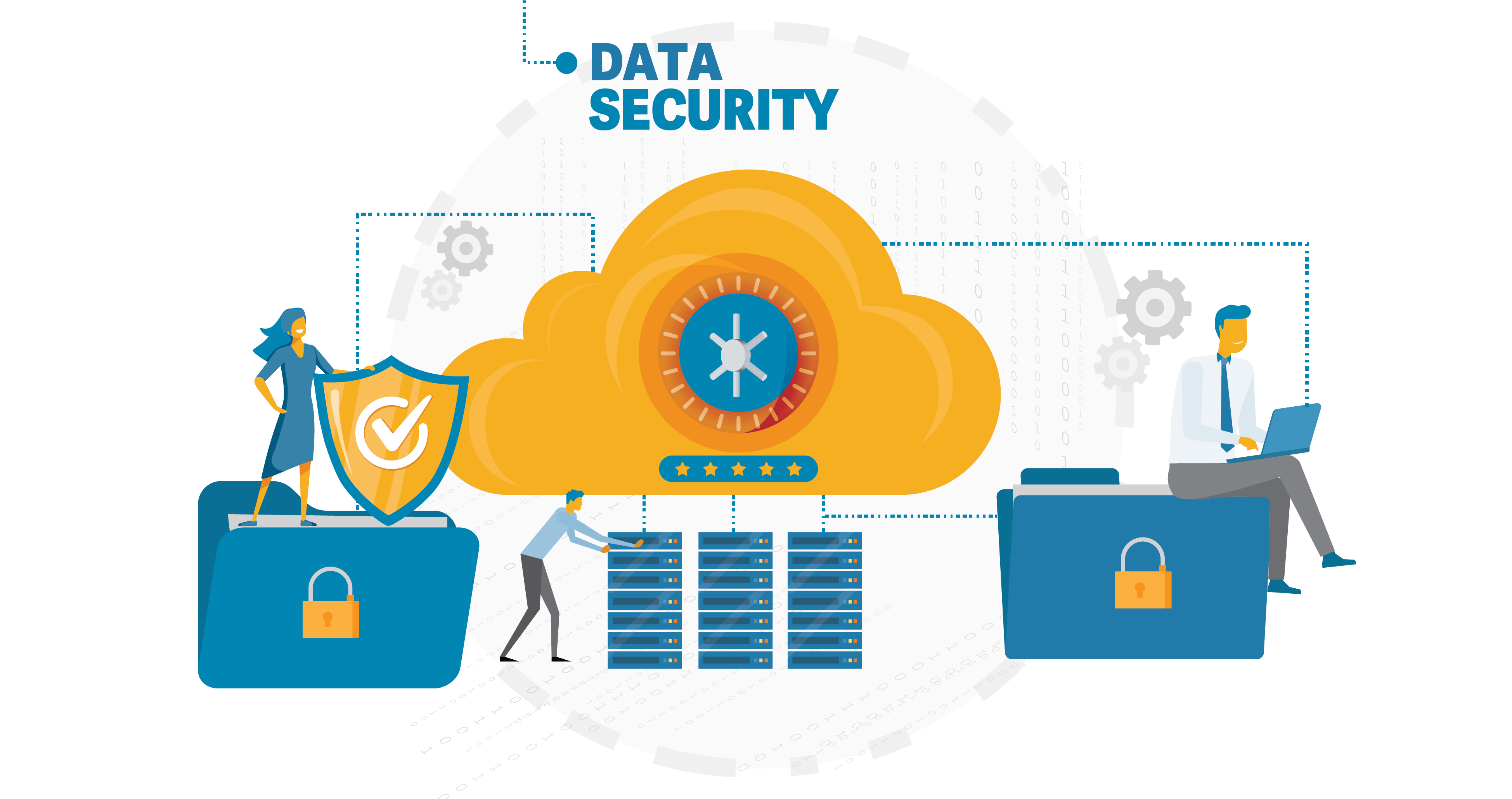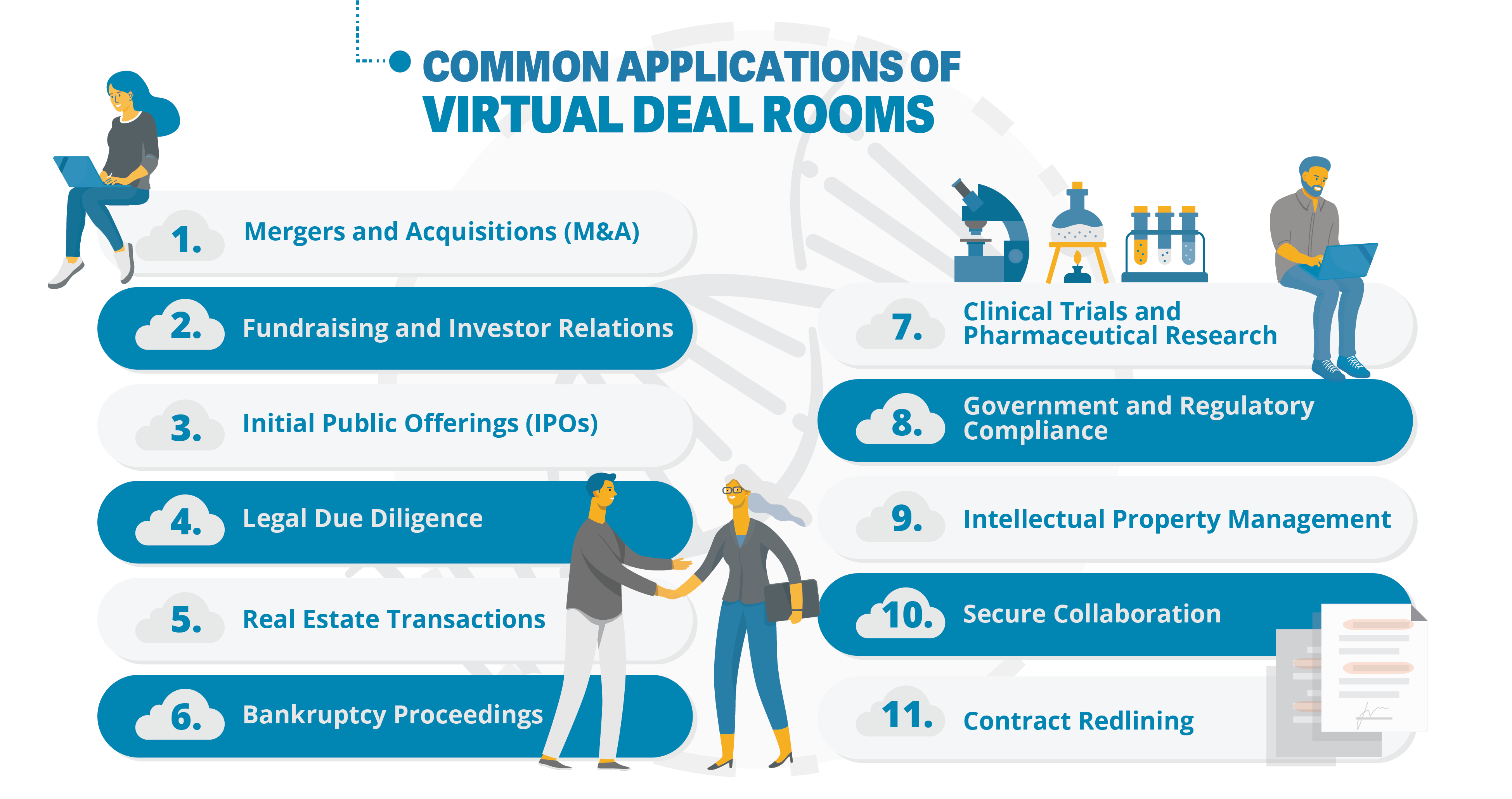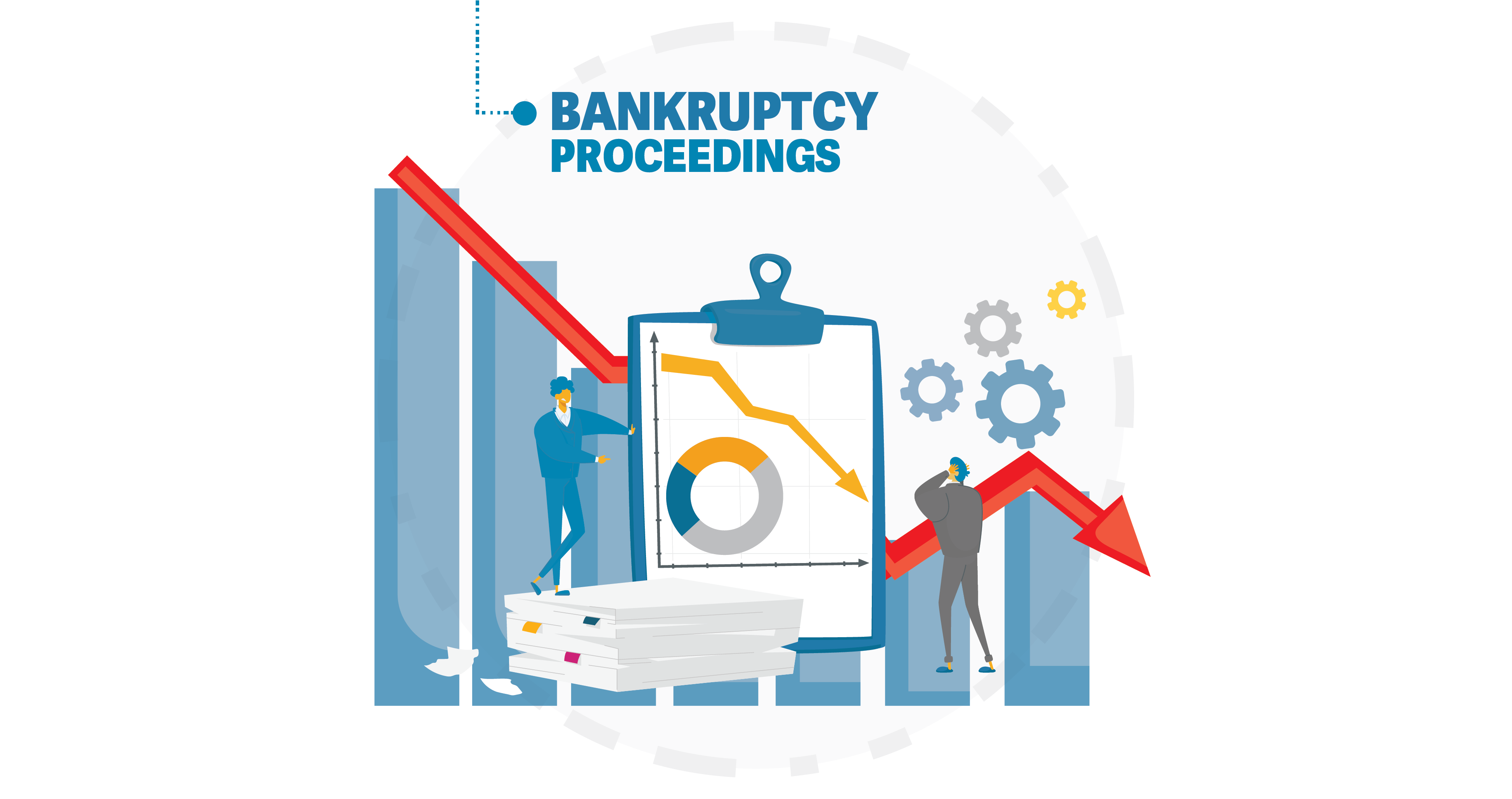In an era characterized by rapid technological advancements, digital transformation, and heightened security risks, the way businesses conduct transactions and share sensitive information has undergone a significant evolution. One of the noteworthy innovations that has emerged to meet these changing demands is the Virtual Deal Room (VDR), a secure online platform designed to facilitate and streamline various aspects of business transactions.
What is a Virtual Deal Room?
A Virtual Deal Room, also known as a Virtual Data Room (VDR), is an online repository that allows organizations to securely store, manage, and share confidential documents and information related to business transactions. It serves as a cloud-based centralized platform where multiple parties, often dispersed across different geographical locations, can collaborate on strategic partnerships, mergers and acquisitions, fundraising, due diligence, and other business activities where sensitive documents are involved.

Unlike traditional physical data rooms, which require participants to gather in a specific location to review physical documents, virtual deal rooms provide a cloud-based digital alternative that offers convenience, efficiency, and unparalleled security.
Key Features and Functions
- Document Storage and Organization: VDRs offer robust features for uploading, organizing, and categorizing documents. This makes it easy to structure information in a way that aligns with the deal's requirements and allows authorized parties to access specific documents quickly.
- User Permissions and Access Control: Security is paramount in deal-related activities. Virtual deal rooms provide administrators with the ability to assign different levels of access to participants, ensuring that sensitive documents are only viewed by authorized individuals.
- VDRs also allow administrators to easily enact role-based access control (RBAC), also known as role-based security. RBAC is an access control method that assigns permissions to end-users based on their role within the organization. RBAC provides fine-grained control, offering a simple, manageable approach to access management that is less error-prone than individually assigning permissions. This can reduce cybersecurity risk, protect sensitive data, and ensure that employees can only access information and perform actions they need to do their jobs. This is known as the principle of least privilege access.
- Real-time Collaboration: Participants can collaborate in real-time within the VDR environment. This can involve discussions, document annotations, and even virtual Q&A sessions, reducing the need for unsecure email exchanges and improving communication efficiency.
- Auditing and Tracking: VDRs offer robust audit trails, which provide a detailed record of who accessed specific documents and when. Audit trails can be very comprehensive and often track and record every user login, agreement click through, video watched or document viewed, printed or downloaded, with detailed specificity. Administrators can trace the chronology of activities by user and gain insights into their interest level and what they care about.This transparency enhances accountability and is particularly valuable during due diligence processes.
- Security Features: Data security is a top concern in deal-making activities. VDRs employ various security measures, including encryption, multi-factor authentication, and secure login procedures, to ensure that sensitive information remains protected. Other security features include:
- Remote Shredding
- Secure Printing
- Expiration Date and Time
- Disable Print, Save, Copy/Paste and Screenshots
- Customizable Watermarks: To deter unauthorized sharing and maintain document integrity, VDRs allow watermarks to be added to every page of a document. Watermarks are clearly visible, applied diagonally across the page or screen, yet do not interfere with the readability of the underlying text. The watermark text is customizable; admins can embed the following dynamic information:
- User's email address
- User's IP address (only with ShareVault Pro and ShareVault Enterprise)
- Current date
- Current time
Benefits of Virtual Deal Rooms
- Global Accessibility: With participants often located around the world, the ability to access and collaborate on documents remotely becomes essential. VDRs provide a platform where authorized parties can engage from anywhere with an internet connection.
- Time and Cost Efficiency: Physical data rooms involve logistical challenges and substantial costs. Virtual Deal Rooms eliminate the need for physical presence and physical documents, reducing travel expenses and allowing deal-making processes to proceed more efficiently.
- Enhanced Due Diligence: During mergers, acquisitions, or fundraising rounds, due diligence is a critical phase. VDRs expedite this process by providing a structured and easily accessible repository of documents, leading to quicker decision-making.
- Data Security: VDRs employ advanced security measures to protect confidential information from unauthorized access, data breaches, and cyber threats. This level of security is often superior to traditional methods of document sharing.

- Environmental Impact: The transition to digital deal rooms aligns with sustainability efforts, as it significantly reduces paper usage, the need for physical infrastructure, and associated carbon emissions.
Common Applications of Virtual Deal Rooms

Mergers and Acquisitions (M&A)
One of the most well-known uses of VDRs is during mergers, acquisitions, and divestitures. Companies engaged in M&A activities need to exchange a vast amount of confidential information, including financial records, contracts, intellectual property, and more. VDRs provide a secure platform for parties involved in the transaction to access and review these documents while maintaining control over who sees what.
Fundraising and Investor Relations
Startups and businesses seeking to raise capital often use VDRs to share sensitive financial information, business plans, forecasts, and legal documents with potential investors. This ensures that interested parties can perform thorough due diligence before making investment decisions. It also allows the firm doing the capital raise to “cast a broader net” by simultaneously soliciting funds from investors all over the world.
Initial Public Offerings (IPOs)
Companies preparing for an initial public offering can use VDRs to organize and disclose required documentation to regulatory authorities, underwriters, auditors, and other relevant parties. This simplifies the complex process of regulatory compliance and due diligence.
Legal Due Diligence
Law firms and legal teams frequently use VDRs for legal due diligence in various cases, such as discovery, litigation, regulatory investigations, and compliance audits. These rooms enable lawyers to collaborate on case materials and securely share confidential documents with clients and other legal professionals.
Real Estate Transactions
Real estate deals involve a plethora of documents, including property records, title deeds, environmental reports, and lease agreements. VDRs streamline the process of sharing and reviewing these documents among buyers, sellers, lenders, and legal representatives.
Bankruptcy Proceedings
In bankruptcy cases, creditors, debtors, and legal advisors can utilize VDRs to manage and distribute critical financial records, contracts, and other pertinent documents in a secure manner.

Clinical Trials and Pharmaceutical Research
The pharmaceutical and healthcare industries rely on VDRs to manage the extensive documentation associated with clinical trials, drug development, and regulatory compliance. Sharing sensitive patient data, trial protocols, and research findings necessitates stringent security measures.
Government and Regulatory Compliance
Organizations subject to regulatory compliance, such as financial institutions and healthcare providers, use VDRs to organize and share compliance-related documentation. These rooms help maintain transparency and streamline interactions with regulatory authorities.
Intellectual Property Management
Companies dealing with intellectual property, such as patents, copyrights, and trademarks, can use VDRs to securely share, manage, and protect their valuable assets during licensing negotiations, technology transfers, or joint ventures.
Secure Collaboration
Any situation that involves sharing sensitive information among multiple parties can benefit from a VDR. Board meetings, contract negotiations, partnership discussions, and strategic planning sessions can all take advantage of the secure and controlled environment that a VDR offers.
Contract Redlining
Contract redlining refers to the process of reviewing and revising a contract or legal agreement before it is submitted to a customer, investor, or regulator. The term "redlining" dates back to the pre-digital age, when a printed document under review was marked up using a red pen or marker. Today, redlining is performed using digital tools to highlight areas under review and revision.
During the redlining process, the original document is examined thoroughly to identify any provisions or sections that need changes, amendments, or further negotiation. The goal is to highlight areas of potential disagreement, ambiguity, or legal risks that could stand in the way of a finalized agreement. These modifications can include clarifying ambiguous language, adjusting payment terms, changing deadlines, adding or removing clauses, or addressing legal or regulatory concerns.
A VDR with a redlining module ensures that all contract edits take place with the secure environment of the VDR, all while maintaining a comprehensive audit trail of all edits, changes and modifications.
In essence, Virtual Data Rooms have expanded beyond their original use in M&A due diligence to become versatile tools for secure document management, collaboration, and information sharing across a wide range of industries and scenarios.Their emphasis on security, access control, and traceability makes them indispensable for managing confidential and sensitive information in a digital age.
ShareVault has been providing organizations of all types and sizes with secure document sharing solutions for over 15 years.
